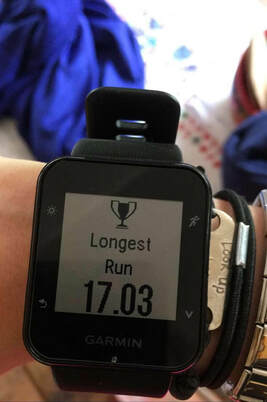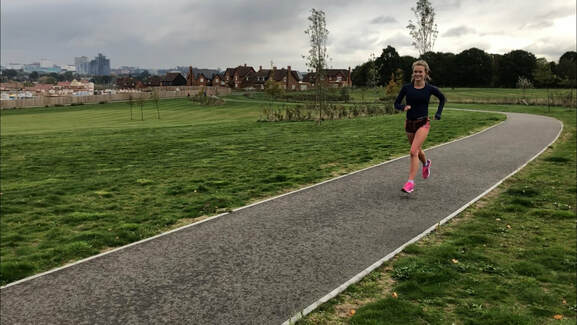|
Sometimes it’s difficult not to get hung up on the digits. How fast are you running? How far have you gone? How much is your weekly mileage? These things can become over inflated in importance. I for one, was a massive culprit of this, but now I work hard to avoid it. At times, of course the digits matter. The time you run for a 5k or 10k race can determine where you are at, but it shouldn’t govern every run you do, and it can become obsessive (in the bad sense of the word). Weekly mileage is the most devilish of digits. I used to find myself constantly working throughout the week to get my mileage higher. Whether I did a longer cool down or warm up, or if I ran for a few extra minutes, I was always trying to run further week on week. This became destructive to me. I was running additional miles where I didn’t need to. I was turning a sufficient 10-minute cool down after a session into a 5k cool down. This didn’t need to be done. This is a dangerous cycle to get in to. Yes, mileage is important but at a slow rate. It is something that should be gradually increased by a small margin at a time. If, as I did, mileage is increased on multiple days a week this is where it can become dangerous. Now I work by what is set, and as the weeks progress, mileage increase occurs naturally. There is no need for me to be preoccupied with my mileage.  Pace/speed is another digit that can become dangerous. This predominantly developed alongside the evolution of smart watches. Before, when I ran purely off a Casio stopwatch, speed was irrelevant, I went purely off of feel. An easy run was at whatever speed felt easy that day, and hard sessions were ran at maximum effort, paced off of feeling once again. Whilst I have never been one to dictate fast reps or runs off of speed, I was a sucker for always checking my speed on easy runs. I have always raced without reference to my speed, totally off feel, so why didn’t I do this when I run easy? It became dangerous and escalated quickly. One week I would run for 45 minutes unaware of pace, the next week I was trying to match or beat the pace of the previous weeks run. This was not necessary. If your body is tired and asking for an easier pace, then listen to it, don’t be governed by the speed on your watch. Following my injury, I was finally able to tell myself: easy runs need to be easy. Whilst I still run with my watch, pace is but a number. I use pace to be aware of when I need to slow an easy run down, not as an indicator that I need to speed up. Undoubtedly, this also makes easier runs far more enjoyable. I don’t feel the pressure of having to run at a particular pace, I go at whatever speed my body feels right doing on that day.  The final destructive digit is distance. I have always run my easy runs according to time, not distance. However, this was another area I became preoccupied by. I would find myself running further to reach a rounded distance. If I finished a 45-minute run just below 10k, I would run for longer to reach 10, or if I was slightly over, I would continue to run until I reached 11k. Whilst I did not think this was detrimental, it soon adds up and can be harmful. Before I knew it, I was running an extra 6k a week purely by trying to run to a rounded number. As I said before, progression is slow and needs to be done gradually, suddenly running an extra 6k a week is a big jump and found me in a place I didn’t want to be, injured. I have now been back running for 4.5 months and have finally been able to DITCH THE DIGITS! My runs are done off feel, not pace. I don’t feel myself running further to reach a certain distance, and I don’t find myself running further to add to my weekly mileage. I have been following my plan as it progresses, and the mileage has been taking care of itself! I’ve found it far more enjoyable ditching the digits, why don’t you?
0 Comments
Leave a Reply. |
Hannah IrwinI love to run and I love to write, so I write about running! Archives
March 2023
Categories |

 RSS Feed
RSS Feed
